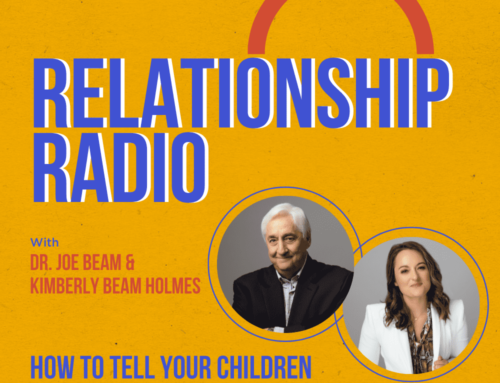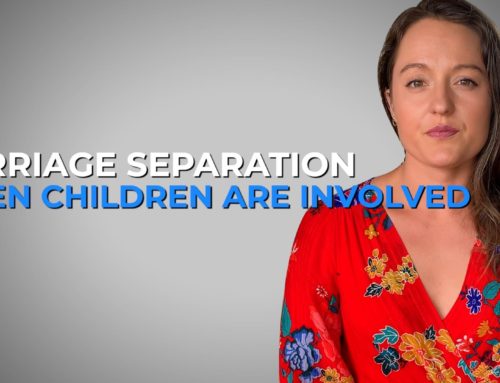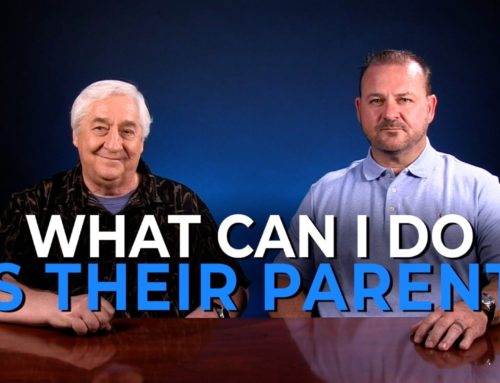Marriage troubles don’t only affect husband and wife. Research from all over the world proves that marital issues, when children are involved, affect them as well. Most of this research shows that there are things you can do as parents to help mitigate the damage done. But what can you do if your spouse isn’t trying to stay involved in your child’s life? We get this question asked a lot. So today, we’ll try and answer how to help your children’s relationship with your spouse.
What Does The Research Show?
While sometimes divorce is inevitable, the best option for your children is if you and your spouse can stay together. Research has shown that even if there is high conflict in the relationship, it’s still better for the parents to remain together. This information proves that it’s not the conflict that’s necessarily bad, but how you handle the conflict. If children see times of high conflict resolved peacefully, it helps them understand how to handle conflict resolution throughout their development. It will also help build their foundation of relationships. Generational divorce, a generation after generation divorcing cycle, comes from the learned behaviors in their parents’ relationships.
On the opposite side, one of the worst situations for children is if the marriage ends in divorce and there is still high conflict afterward. After divorce, there can often be what psychologists call triangulation. This situation is where parents try to get the child to come over to their side and have negative feelings or sentiments towards the other parent. Triangulation can happen in many ways, but you often see one spouse bad-mouthing the other. They say things like, “They can’t love you as I do.” Or, “They don’t trust me.”
Children who grow up in this environment show signs of altered behavior. For example, we tend to see children who have experienced high conflict after a divorce have higher rates of juvenile delinquency. They also tend to be further behind in school, have behavioral issues, anger issues, discipline issues, and are more sexually promiscuous. In addition, girls are more likely to experience teenage pregnancy and have multiple sexual partners before they turn 18. These findings are not said to scare you because there’s no guarantee this will happen, but research does show the odds increase. So, how can you help your children’s relationship with your spouse?
You Can’t Force It
After divorce occurs, 25% of fathers will no longer see their child after the first year. This percentage increases to 50% around the five to the ten-year mark. While those numbers might be scary, the first thing you have to understand is that you can’t make your spouse a good parent. Your spouse will have to make their own decision to stay in their child’s life and be a positive influence. Nothing you can do will change their mind, and it can often even push them further away if you try.
Instead, reassure your child how much they are loved. Assure your child that you love them very much and that your spouse does as well. It might be hard for you to say positive things about an absent spouse, but talking positively about them will help mitigate some of the adverse effects of the divorce.
Then, if you can, try and help your spouse understand your child’s emotions. You have to be careful and not approach this in a manipulative way. Your spouse might already feel guilt from not spending enough time with their child, so you telling them their child has problems at school or behavioral issues because they’re not around could push them further away.
If they’re old enough and willing, the best strategy here is to have the child themself talk to the absent spouse and explain their feelings. Talking about their feelings with an absent parent can still be challenging, even if they’re teenagers. Often they’re afraid that if they tell the parent about the hurt and the pain, then that parent may not come around anymore. They would rather have what little time they might get with them then push them away altogether. So, if your child can’t or won’t have the discussion, you should still try to talk with your spouse yourself.
Everyone Needs Support
Children often feel that divorce is at least partially because of them. Part of reassuring children that they’re loved is also emphasizing that it had nothing to do with them at all. Recruit family to help be a support group for your child. Grandparents, aunts, uncles, and other close family members can all help to reassure the child how loved they truly are. Be sure that anyone helping support the child understands that they can’t say negative things about the other spouse. There is no place for negative thoughts while going through this situation.
Don’t forget to find support for yourself as well. Be careful in choosing support, just as you would do choosing support for your child. There are groups devoted to anger and vitriol because they are stuck in their pain. These groups are not helpful because you need to be surrounded by positive emotions. The same goes for family trying to support you. Make sure they understand; just like when they’re around your child, you don’t want them talking bad about your spouse to you.
Look At Your Future, But With Your Kid’s Future In Mind
You won’t always have all the answers, and you don’t have to. The best thing for you is to stay invested in your child’s feelings. Be curious. What is it that they need from you? Keep focused on what you CAN control. Remember, you can’t control what your spouse is doing or force them to be a better parent.
Hopefully, your spouse will decide to stay involved in your child’s life at some point. But you can’t worry about what would happen if they choose not to be. In the meantime, stay focused on your future with your child. If you move on to future relationships, keep your child in mind and how you want them to interact with this new person. Don’t lose focus on your child as your spouse has. Always keep them in mind when making decisions.
If you follow these steps we’ve outlined to help your children’s relationship with your spouse and continue to show them how loved they are, you’ll go a long way to mitigating any negative impact it might have on them.
If you want to repair what’s broken in your marriage and strengthen your family, we are here to help. Click here to schedule time to talk with one of our Client Representatives about the best next steps for your situation.
If you are interested in exploring reconciliation with your spouse, check out our FREE eBook here.




